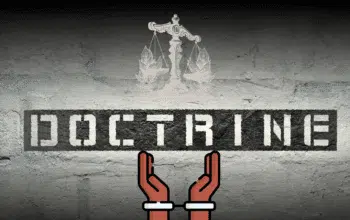Legal Literacy – This article discusses why legal development is considered to be lagging behind in keeping up with events and developments in society. Discover the factors that lead to legal backwardness and its impact on modern society.
Introduction
Law is a system that governs the governance of society, protects rights and obligations, and provides a basis for justice and order. However, there is often a perception that the law is often slow in keeping up with events and developments in society. The fundamental question that arises is why is the law considered to be lagging behind and what are the consequences for society? This article will try to explore the causes and roots of these feelings.
5 Factors in Legal Development Considered Lagging
1. Complicated Legislation Process
One of the main reasons why legal development is sometimes perceived as lagging behind is the complicated and lengthy legislative process. To pass a new law, it takes a long time, in-depth discussions, and approval from various parties, such as the legislature, government, and interested parties. In addition, legal change often involves complex bureaucratic mechanisms, so legal innovation and adaptation are hampered by convoluted procedures.
2. Rapid Social Change
Modern society is in an era of rapid change, especially in terms of technology and social interaction. The internet, social media and other advanced technologies have changed the way people communicate, work and interact. Unfortunately, legal developments often struggle to keep up with these changes quickly, and they often become outdated or irrelevant in the face of new situations.
3. Inability of Law to Anticipate
Laws generally focus on problem solving and preventive measures against potential problems are given less attention. As a result, when unanticipated events occur, the law is often inadequate to deal with the problem. The law’s lack of ability to anticipate the development of society and technology causes a feeling of being left behind in responding to the challenges of the times.
4. Resistance to Change
Social and technological advancements often face resistance from various parties, including conservative groups, large corporations, and even certain individuals who feel threatened by the changes. This resistance can slow down the process of legal change needed to adjust to societal developments.
5. Institutional and Resource Limitations
Some legal systems suffer from institutional and human resource limitations. The lack of experienced legal experts or professionals can make it difficult to keep up with events and developments in society. In addition, limited funding and resources may also affect the law’s ability to adopt necessary changes.
Conclusion
Hukum yang tertinggal dalam mengikuti peristiwa dan perkembangan masyarakat adalah masalah kompleks yang melibatkan beberapa faktor. Complex legislative processes, rapid social change, the inability of the law to anticipate, resistance to change, and institutional and resource limitations are some of the main causes. To ensure the relevance and effectiveness of the law, there needs to be awareness of these challenges and concerted efforts from various parties to address them. A dynamic, inclusive and responsive law will be able to deal with the changing times and the needs of society more efficiently.







